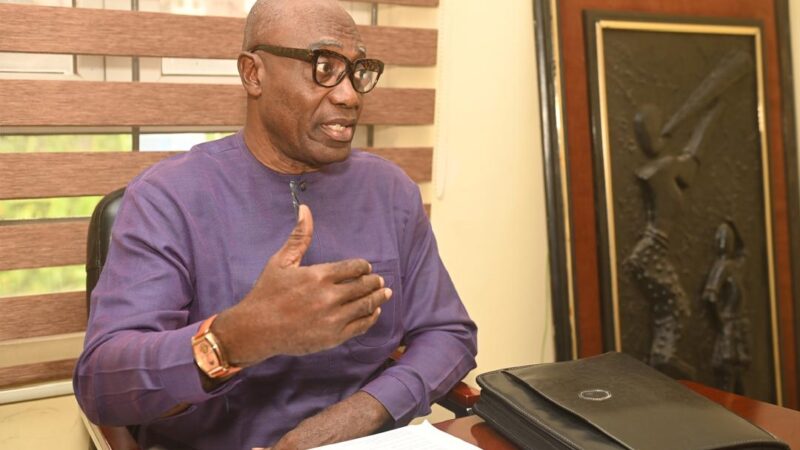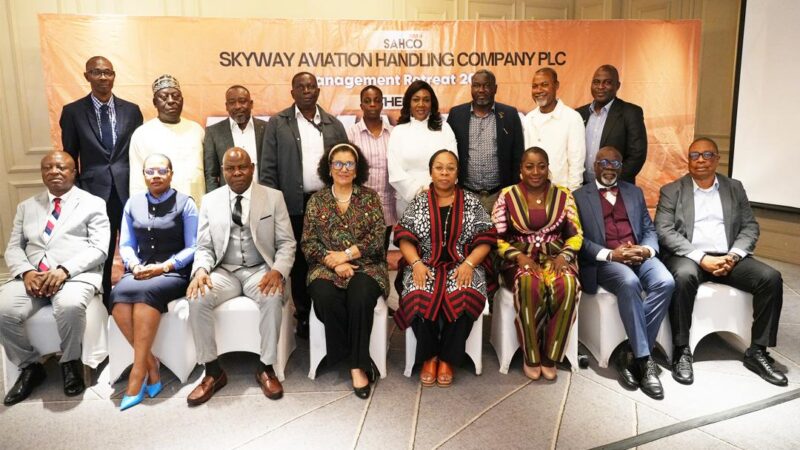Nigeria’s Aviation From Colonial Beginnings – FAAN Boss Celebrates a Century of Progress at Book Launch

The Managing Director and Chief Executive of the Federal Airports Authority of Nigeria (FAAN), Mrs Olubunmi Kuku, delivered a stirring address at the official launch of the commemorative book “100 Years of Civil Aviation in Nigeria” written by renowned aviation journalist Mr Wole Shadare.
The event, which was held on Thursday, marked a significant milestone in the nation’s aviation history, celebrating a century since the first aircraft touched down on Nigerian soil.
Reflecting on the momentous occasion, Mrs Kuku recounted the journey that began in 1925 when a single British aircraft landed in Kano. “Today, hundreds of aeroplanes traverse our skies daily, fulfilling aspirations, connecting families, and contributing billions to economic growth,” she declared.
However, she was quick to note that beyond the figures and flight traffic, the true story of Nigeria’s aviation sector is rooted in its sovereignty and the transformation of its airspace into one of Africa’s most promising aviation markets.
“We are witnessing the evolution of a nation’s ambitions,” she said. “From our colonial beginnings to our current status as West Africa’s largest aviation market, every milestone narrates a story of determination and opportunity.”
Mrs Kuku acknowledged that Nigeria’s aviation trajectory has not been without turbulence. She reflected on the post-independence years, during which the country grappled with the challenge of transforming colonial infrastructure into a vehicle for national progress.
The creation of Nigeria Airways, though a bold response to this challenge, suffered from mismanagement and inefficiencies, ultimately leaving the industry in dire need of reform by the early 2000s.
She credited the subsequent resurgence of the sector to private sector intervention. “The private sector took the initiative, introducing fresh capital, contemporary management practices, and a competitive spirit,” she explained.
Airlines such as Air Peace and Arik Air, she added, did not merely fill a vacuum but revolutionised the aviation landscape.
Today, Nigeria boasts 39 certified airline operators, 31 airports across the country, more than 2,100 licensed pilots, and a thriving aviation workforce.
According to Mrs Kuku, the aviation sector currently contributes approximately $1.7 billion to Nigeria’s GDP, with over 16 million domestic and 3.5 million international passengers recorded last year alone.
Yet, amidst the accolades, the FAAN boss emphasised that much potential remains untapped. She urged stakeholders to view challenges – such as infrastructure gaps, regulatory hurdles, and funding needs – not as impediments but as investment opportunities.
“Each challenge facing our aviation sector represents a potential investment awaiting realisation,” she noted. “Our skies are not merely thoroughfares for aircraft – they are highways to prosperity.”
Turning to Mr Shadare’s newly launched book, Mrs Kuku praised it as both a tribute to the past and a lens through which to envision the future.
“Mr Shadare’s book provides us with a perspective to comprehend how far we have advanced, as well as an examination of the flight path ahead,” she remarked.
She also lauded the author’s dedication and journalistic integrity, which she said are evident throughout the publication.
In a call to action, she challenged attendees and stakeholders to embrace the vision articulated in the book. “Are we prepared to accept Mr Shadare’s challenge?” she asked. “What investments are we willing to make to appropriately mould the future of Nigeria’s aviation sector?”
Mrs Kuku concluded by congratulating Mr Shadare and expressing her eagerness to delve into the book’s pages to discover the answers to the pressing questions about the future of Nigerian aviation.
“Once again, I congratulate you on this book and thank you for inviting me,” she said.
The event, which had the Minister of Aviation and Aerospace Development, Festus Keyamo and other stakeholders in attendance, marked a poignant reflection on a century of progress, resilience, and hope in Nigeria’s aviation history – and a clear invitation to shape its future.







